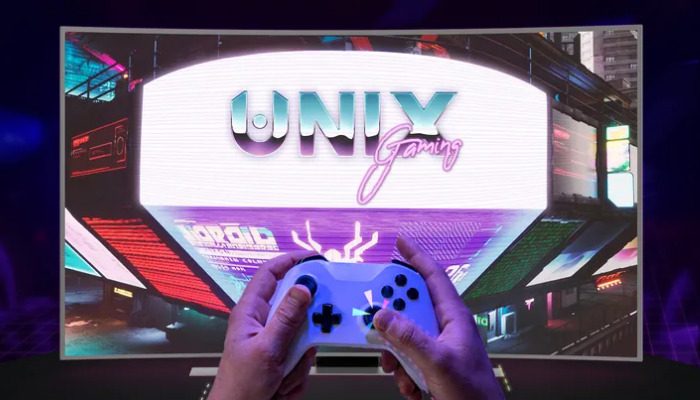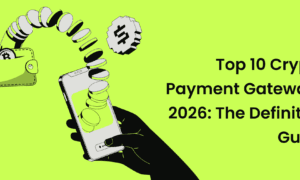With the global gaming industry worth $300 Billion in 2022, there is no doubt that the industry will continue to grow and expand into new avenues. Web3 gaming is just such an avenue. With Web3 gaming being a booming concept within the gaming and crypto world, a major difference that sets it apart from traditional gaming is the structure of funding and the development of games.
Gaming Publishers – How Do They Work?
You’ve probably heard of traditional gaming publishing giants such as EA, Square Enix, and Activision Blizzard, but what role do they play in the development of games? In the traditional gaming world, gaming publishers are known to finance games; however, there is much more than they get involved in. Gaming publishers partner up with gaming developers and depending on their agreements, can assist with the development of games, quality assurance testing, brand management, and sales. In a nutshell, publishers take game concepts from A to Z, assisting developers every step of the way. Partnering with a publisher seems like a no-brainer as it ensures reliable funding and global reach – helping developers get their games off the ground.
It may seem as though the gaming developers are benefiting the most from these partnerships, but what’s in it for the publisher? Due to the considerable amount of time, money, and effort that publishers put into the development of games, they tend to hold a lot of power. In most cases, (of course, depending on the terms and conditions of each partnership), publishers have all copyright rights to the game, they have the right to the majority of the revenue, as well as the power to make decisions regarding the project in both technical and creative aspects. Additionally, this structure leaves the original gaming developers powerless against potentially harmful decisions made by the publisher. This imbalance of power has seen conflict arise between gaming partnerships in the past, leading to postponed or even canceled gaming projects.
A prime example of a failed game launch due to poor decisions made by the publisher is that of SimCity – whereas, after many years of anticipation, the game was released before it was ready and playable. This led to Amazon suspending sales in order to limit negative reviews as well as EA issuing a statement acknowledging their mistake, ultimately offering the game as a “freebie” to all those who had purchased it. Anthem, a game published by EA, saw constant conflict between its developers and publisher, going as far as the developers reporting that they developed anxiety and depression as a result of EA’s working environment. As a result, Anthem lacked direction and unfortunately did not meet fans’ expectations.
Entering the World of Web3 Gaming
The world of Web3 gaming takes a very different approach when it comes to the financing of games, which involves decentralized methods through the help of crypto gaming guilds and/or IGO launchpads. Crypto gaming guilds are organizations where investors, gamers, and other parties act as intermediaries in the purchasing of in-game assets (such as NFTs and virtual land), which are then used to build capital through the lending of those digital assets.
Crypto launchpads, also known as Initial Game Offerings (IGOs), are decentralized platforms that allow blockchain games to source funding from interested investors across the globe. A prime example of a launchpad project doing just this is Final Round, founded by one of the leading crypto gaming guilds in the industry – UniX Gaming in partnership with DAO Maker and SL2 Capital. UniX Gaming is known as an ecosystem within the Play-And-Earn space, onboarding new GameFi projects into their own metaverse.
Similar to other crypto launchpads and the aforementioned “game publishers”, Final Round gives investors the opportunity to invest in projects (especially Web3 and GameFi), ultimately assisting gaming developers in sourcing necessary funding, akin to the concept of a Kickstarter. The biggest perk of investing through a launchpad such as Final Round is that you are granted voting rights – being given the opportunity to voice your opinions regarding the projects that you have invested in. And because UniX Gaming is implementing a Decentralised Autonomous Organisation (DAO) structure, most decision-making will be automated, steering away from the hierarchical structure of traditional organizations. With Final Round, investors and players alike have a say in the development of the game – bringing about a new culture of democracy into the gaming world.
Additionally, as a gaming developer – you do not lose your rights or revenue to the gaming launchpad. Launchpads give game developers and gamers an opportunity to advertise, publish and invest on the platform through a community-driven environment. Albeit a new project, Final Round has already shaken up the Web3 gaming world through its partnership with Delysium, the first truly playable AAA blockchain game.
Conclusion
The flat, democratic structure of crypto launchpads allows gaming developers to not only keep their relevant rights and revenue but also give their community the opportunity to give input and affect decision-making. Although the traditional structure of the gaming industry partnering with gaming publishers has been in place for many years, could launchpads within the Web3 space potentially take over the stronghold that publishing giants have over gaming developers, ultimately giving back the power to the gaming community?



































